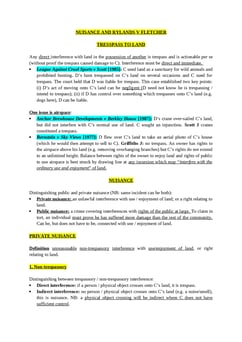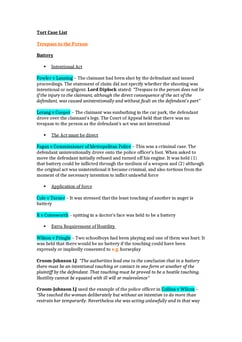Attia v British Gas [1987] 3 All ER 455
Judgement for the case Attia v British Gas
Table Of Contents
KEY POINTS
In negligence cases, a consideration lies in assessing the foreseeability of risk. Take, for instance, this scenario where a plaintiff's residence falls victim to a fire ignited by the negligence of central heating installers.
If the plaintiff endures psychological trauma from witnessing the inferno, even without physical harm to themselves or others, albeit with property damage, it raises the fundamental question of the plaintiff's eligibility for compensation due to nervous shock.
FACTS
The plaintiff initially contracted the defendant to install central heating in her residence. During the installation process, the defendants' employees, due to negligence, inadvertently triggered a fire that caused extensive damage to the home and its contents. Accepting responsibility for the damage, the defendants settled with the plaintiff concerning the property's harm.
The plaintiff initiated legal action against the defendants, asserting a claim for damages related to nervous shock. She alleged that she had developed a psychiatric illness after witnessing the fire. Recognizing the significance of the matter, the involved parties agreed to address whether the plaintiff could seek damages as a preliminary issue based on assumed facts as a means to economize on costs.
In the initial trial, the judge ruled that damages for nervous shock could solely be awarded if associated with physical injury. Consequently, it was deemed unforeseeable that the plaintiff might suffer psychiatric illness due to the defendant's negligence in causing the fire. Consequently, the plaintiff's claim was dismissed.
The plaintiff subsequently appealed this decision.
JUDGEMENT
-
The appeal was allowed, and it was held that a plaintiff who experienced psychiatric illness as a direct consequence of witnessing damage to her property, instead of personal injury to another individual, was eligible to seek damages for nervous shock.
To do so, she needed to demonstrate causation and reasonable foreseeability, both of which were considered issues of fact that should be established based on complete and proven facts rather than mere assumptions.
Consequently, given the circumstances, the case was deemed suitable for proceeding to a full trial.
COMMENTARY
This case explores the issue of foreseeability in negligence cases, especially regarding compensation for nervous shock. It revolves around a plaintiff whose home was damaged by a fire caused by negligent central heating installers. Even without physical harm to the plaintiff, the key question is whether she deserves compensation for the psychological trauma of witnessing the fire.
The initial judgment stated that damages for nervous shock typically required physical injury, deeming it unforeseeable that the plaintiff would suffer psychiatric illness due to the defendant's negligence.
The plaintiff appealed and the appellate court ruled that a plaintiff could seek compensation for psychiatric illness resulting from property damage. This, however, depended on proving causation and reasonable foreseeability based on facts, not assumptions. As a result, the case proceeded to a full trial.
ORIGINAL ANALYSIS
Defendant caused a fire to Plaintiff’s home, and she sued him for negligence in causing her nervous shock.
CA ruled that nervous shock could be admitted upon witnessing damage to property and NOT just physical injury (provided proximity and reasonable foreseeability could be proven).
Lord Bingham
No reason why psychiatric shock should be allowed when it is caused by personal injury but not property damage.
One argument advanced is the floodgates argument, but he says that this type of argument has always previously been overstated and rarely proved to be a justified fear.
He says the need to prove reasonable foreseeability and psychiatric damage will prevent a flood of successful claims.
For Further Study on Attia v British Gas

Tort Law notes fully updated for recent exams at Oxford and Cambridge. ...
Need instant answers? Our AI exam tutor is here to help.
Ask questions 🙋 Get answers 📔 It's simple 👁️👄👁️
Our AI is educated by the highest scoring students across all subjects and schools. Join hundreds of your peers today.
Get StartedSimilar Cases
Related Product Samples
These product samples contain the same concepts we cover in this case.
| GDL Tort Law | Negligence Psychiatric Harm Notes (5 pages) |
| GDL Tort Law | Negligence Nervous Shock Notes (14 pages) |
| Tort Law | Nervous Shock Notes (4 pages) |
| GDL Tort Law | Psychiatric Injury Notes (8 pages) |

 Since 2010, Oxbridge Notes has been a trusted education marketplace, supplying high-quality materials from top achievers at universities like Oxford, Cambridge, LSE, Harvard, and Yale.
Since 2010, Oxbridge Notes has been a trusted education marketplace, supplying high-quality materials from top achievers at universities like Oxford, Cambridge, LSE, Harvard, and Yale.